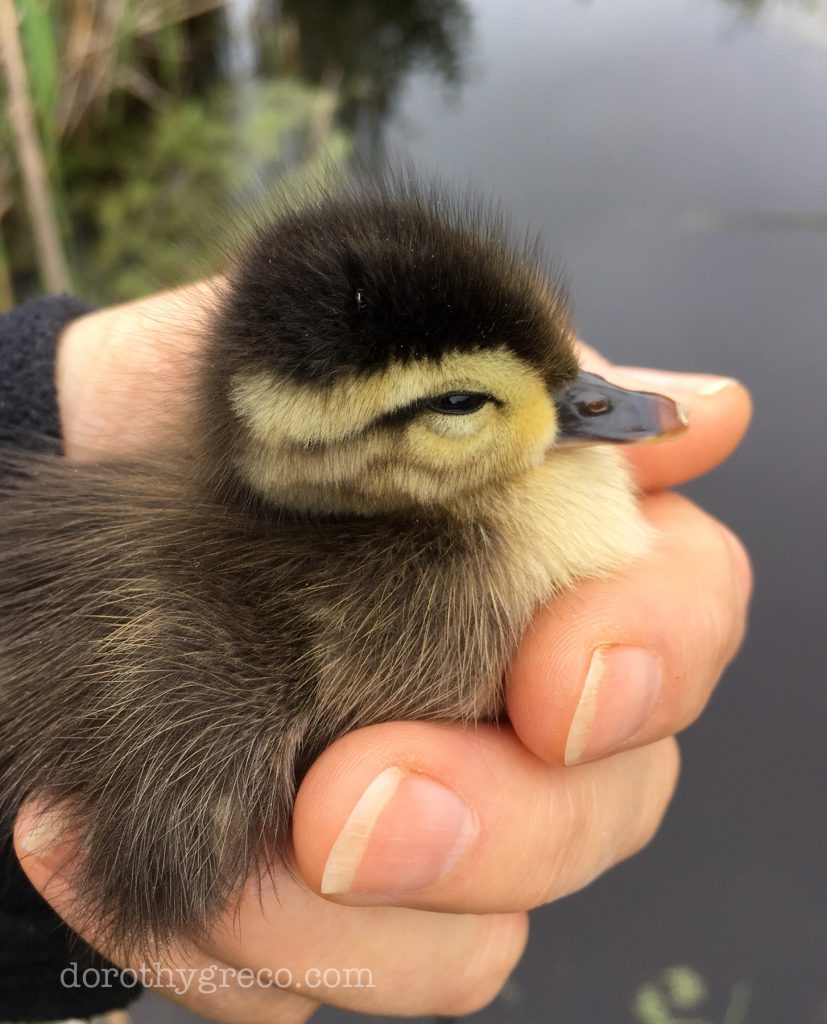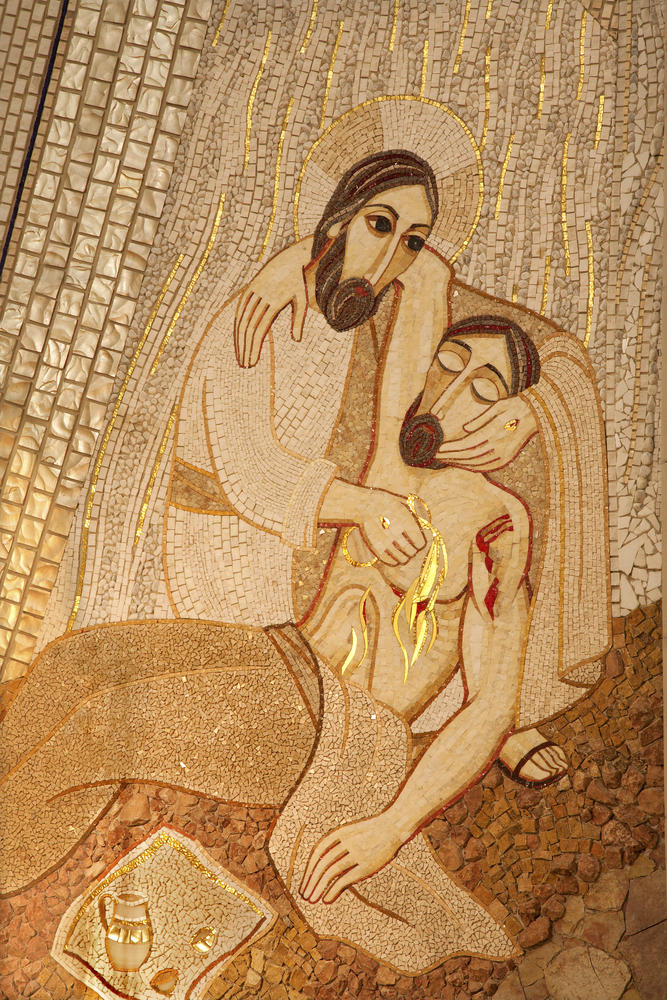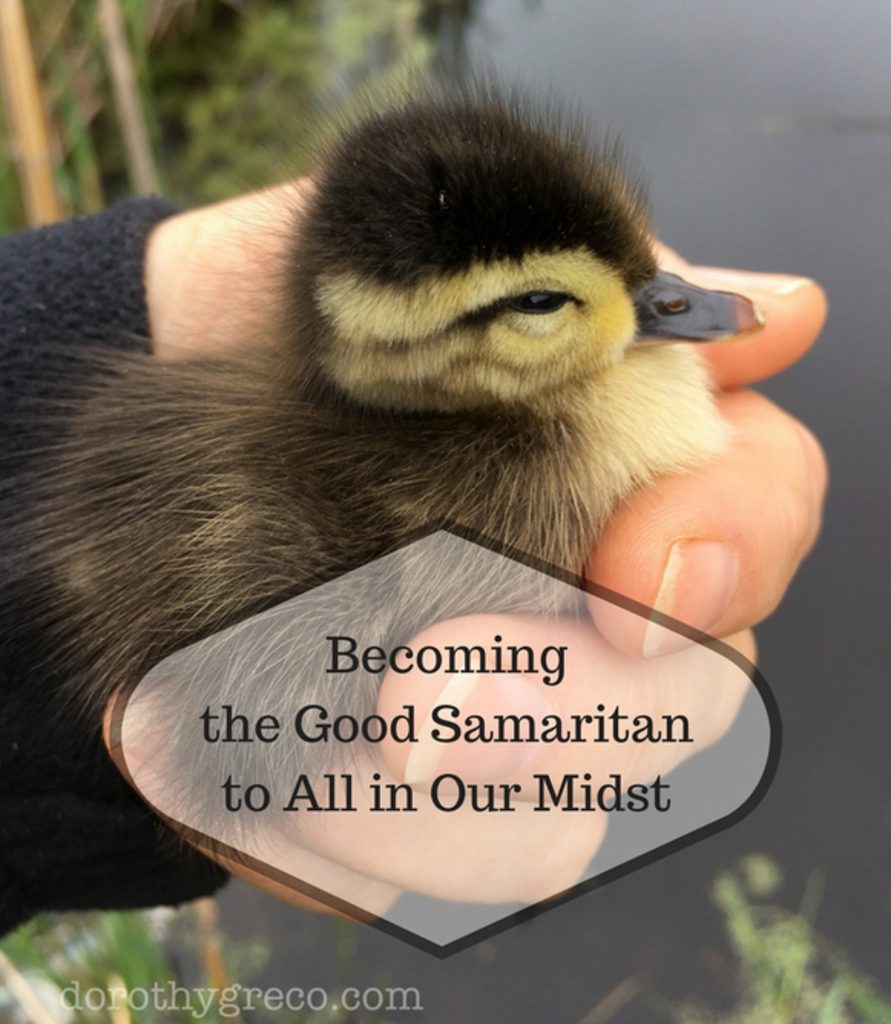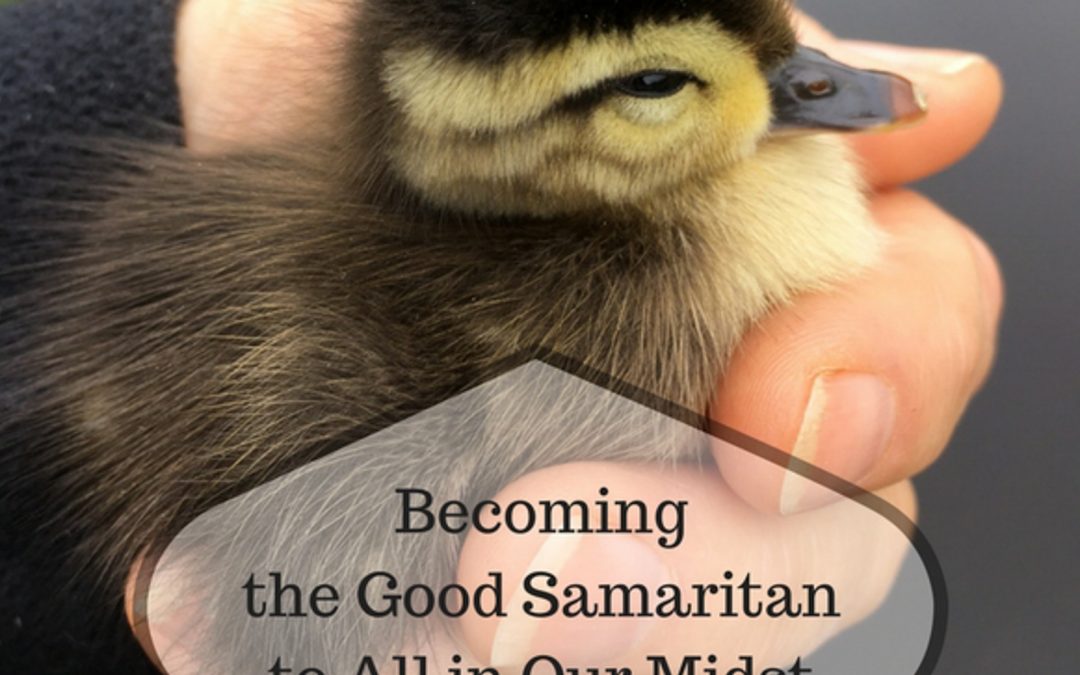
Sometimes it’s the little things that break you.
On my way home from doing errands today, I turned off the state highway and nearly crushed a tiny duckling that was erratically waddling across the road.
Being me, I could not drive by.
Initially, I thought I could simply shepherd the poor creature off the road and into the nearby marsh. When it became clear that was a no-go, I gently scooped it up and we began searching for his mother together.
Nothing. No evidence of a duck family. Anywhere.
I walked into the local vet. The receptionist responded by offering to euthanize it. Thanks, but no thanks.
After twenty minutes or so, it became clear that the duckling was becoming stressed. (Truth be told, I was too!) Feeling like I had no better option, I slid down the embankment and released it along the water’s edge. Immediately, the duckling began peeping loudly as it paddled off. Its frantic cries went unanswered and it soon disappeared in the reeds.
I am not ashamed to admit that I cried. I have always felt a great deal of compassion for wounded or sick animals. Perhaps it was all of those James Herriot stories I read when I was growing up. But perhaps it’s a God-given response when I come upon something (or someone) that is weak or vulnerable.
That tendency to be deeply moved is also why I hurry through the news feeds these days. Daily stories of bombings, displaced families, mistreated animals, the earth groaning under the weight of our corporate abuse all crush my spirit.
And so I turn away. As if that’s really an option.
The apostle Luke speaks directly to this tendency. It’s a story many of us are familiar with even if we never went to Sunday school:
On one occasion an expert in the law stood up to test Jesus. “Teacher,” he asked, “what must I do to inherit eternal life?”
“What is written in the Law?” he replied. “How do you read it?”
He answered, “‘Love the Lord your God with all your heart and with all your soul and with all your strength and with all your mind’; and, ‘Love your neighbor as yourself.’”
“You have answered correctly,” Jesus replied. “Do this and you will live.”
But he wanted to justify himself, so he asked Jesus, “And who is my neighbor?”
In reply Jesus said: “A man was going down from Jerusalem to Jericho, when he was attacked by robbers. They stripped him of his clothes, beat him and went away, leaving him half dead. A priest happened to be going down the same road, and when he saw the man, he passed by on the other side. So too, a Levite, when he came to the place and saw him, passed by on the other side. But a Samaritan, as he traveled, came where the man was; and when he saw him, he took pity on him. He went to him and bandaged his wounds, pouring on oil and wine. Then he put the man on his own donkey, brought him to an inn and took care of him. The next day he took out two denarii and gave them to the innkeeper. ‘Look after him,’ he said, ‘and when I return, I will reimburse you for any extra expense you may have.’
“Which of these three do you think was a neighbor to the man who fell into the hands of robbers?”
The expert in the law replied, “The one who had mercy on him.”
Jesus told him, “Go and do likewise.” (Luke 10:25-37)

I stopped for the duckling because I could not avoid it but how many times have I been like the priest or the Levite? Too many.
Last night, I read the following words from Erin Straza’s excellent book, Comfort Detox, “The gospel is not about conserving your life, but spending it.” That’s what the good Samaritan did. That’s what the White Helmets and thousands of volunteers are doing along Italy’s coast.
Most of us in North America have the luxury of not responding because we don’t round the corner on the way home and bump into refugees. But we could. We could change our route or slow down.
It’s hard not to wonder what the world would look like if more of us chose to become good Samaritans. If we willingly spent ourselves on the weak, the needy, and the vulnerable among us, there would certainly be a lot more mercy and a lot less fear and hatred.
Will you join me?
Potential next steps:
Read this article on the refugee crisis.
Find out how to serve refugees in a local church.
Support organizations that rescue animals around the world.
Volunteer at a local prison or senior center.
Help a community gain access to clean water.
Thanks for stopping by.

